Civil Liberties, Criminalizing Dissent, Habeas Corpus, Human Rights, Surveillance, Truth to Power
Podcast: Play in new window | Download
Updates:
- What Does OWS Mean? – Michael Steven Smith
- Liberty Square Symbolic, At The Foot Of Capitalism
- Redistribution of Money and Power
- Nationally Coordinated Bust: Oakland Mayor Says She Was On Conference Call With 18 Mayors
- Michael Smith’s Story Of Liberty Square Police Raid
- NYTimes Candid With Spoils Of Libya Invasion
- Who Killed Che? How The CIA Got Away With Murder
—
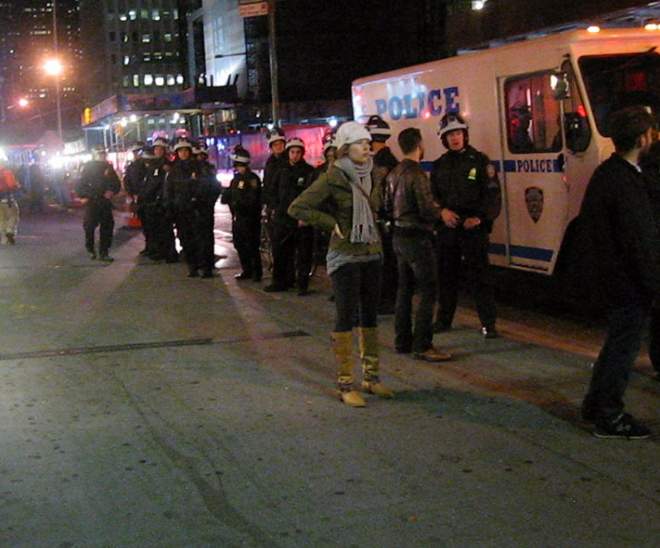
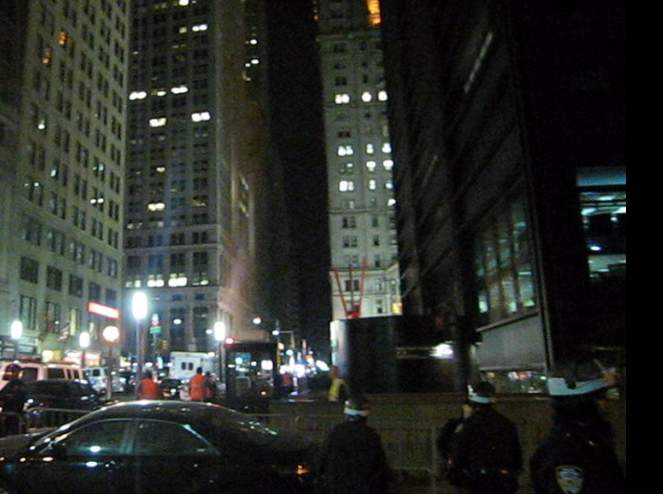
Legal Fallout From OWS Raid In New York City
Very early last Tuesday morning, teams of New York City Police in full riot gear descended upon the 2 acre park known by protesters as Liberty Square, home of Occupy Wall Street. Hundreds were arrested as police and bulldozers dismantled and tore down tents, confiscated gear, computers and clothes. Plain clothes construction workers assisted in filling large dump trucks with personal belongings and equipment from the encampment. The massive eviction is one of many reported across the country in past weeks.
Attorney Danny Alterman:
- There’s been a core group of 20 or 30 people working on issues that effect the occupiers down on Wall Street.
- We talked strategy, we created a document that would decide and get us into court in the morning.
- We are arranged to meet Judge Billings at 6AM
- We wanted to judge to issue a temporary restraining order which means that the police could not continue to evict people and order them back into the park with their belongings.
- We got a signed order from the judge to let our clients back in.
- We served Brookfield Properties which is the owner of the park, the city of New York through the corporation council, and the police department by fax with a copy of the order.
- What this reminded me of is was what had happened precisely in 1971 when the Attica Massacre happened. When we got a court order to go in because people were dying and getting shot, inside and the prison authorities refused to open up for medics and lawyers, causing the death of other people.
- Finally I said to one guy who was getting on me and getting on another lawyer that was there. I said listen, this reminds me of Attica, he said I’ve never been to Attica, I said we can make those arrangements.
- I said, you realize you’re violating a court order, and in contempt of court.
- Mayor Bloomberg in the course of us getting an order and finding out about it, had decided to close the park, which was the complete opposite of what the court said which was to re-open the park.
- Homeland Security was definitely there, you can tell by the crew cuts and the shoes.
- There was a temporary restraining order issued at 6:30 AM. We didn’t think Judge Billings would stay on the case. She didn’t. We went back at 11:30AM, and once a judge was assigned had about a 2 hour argument.
- We received papers as we walked into court from the city which contained a affidavit which is a legal document swearing to issues of public safety, health issues, other kinds of issues, that was clearly prepared before they evicted the protesters 10 hours before.
- What this means is that the city knew in preparing these papers that there was going to be a legal challenge.
- Brookfield Properties a descendant from US Steel. This is direct descendant from US Steel.
- We may be looking at 21st century speech assembling petitioning.
- Its a privilege and an honor to represent these people and I think the people have the pulse of the country and its happening.
Guest – Civil rights attorney Danny Alterman, Danny is part of the Liberty Park Legal Working Group.
———–
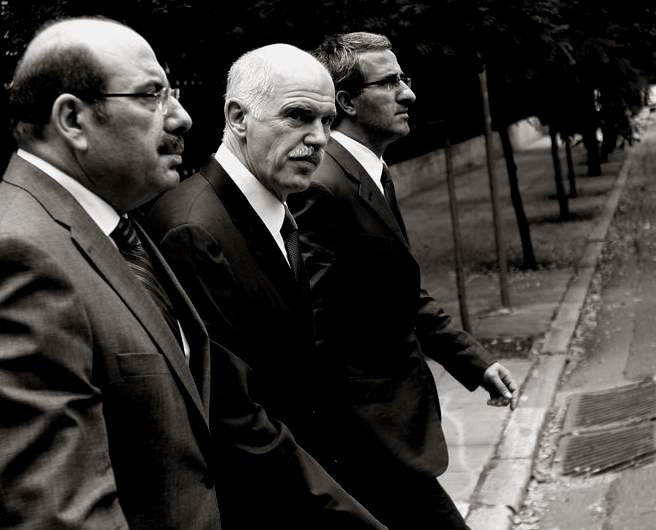
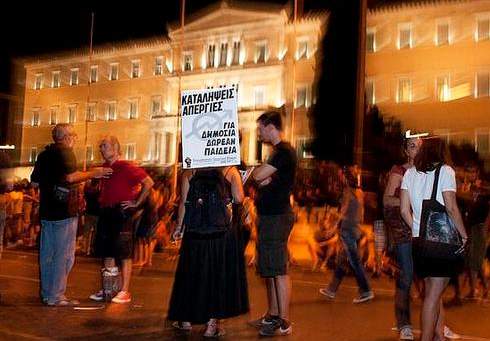
Global Capitalist Crisis and Long Term US Unemployment
Thousands around the country continue to stand in solidarity with the Occupy Wall Street movement. The movement claims to defend the 99 percent of Americans against the wealthiest 1 percent who control 50 percent of the wealth in the United States. Meanwhile, long term US unemployment is taking a heavy toll socially. The social costs are high, the stress, tension and anxiety within families, the costs of counseling, and much more. We discuss these topics with returning guest, economics professor Rick Wolff who says, enormous wealth could be produced right now with the unused tools and raw materials put together with the nation’s unemployed people, we could rebuild our cities and infrastructure.
Professor Rick Wolff:
- Debt is always a sign of something else. You go into debt because you see a need or opportunity for which you don’t have the money and so you either forego the need or opportunity or borrow.
- If you see off the chart increases of debt like you do in the case of individuals in the last 30 years, or corporations and in the case of governments at a slow rate over the last 30 years, then you have to ask the question why?
- The 1970s come along and that period of 150 years of rising wages is over. It’s over because the computer replaces large numbers of people they don’t need to be hired. Production is moving out of the United States.
- Immigrants are flowing into the United States because the uneven development of the world economy, makes them poorer and the United States look more attractive.
- Suddenly employers have the greatest of all possibilities, they don’t have to raise wages anymore.
- Employers: If you’re not happy here, there’s a lot of other people that will be.
- Meanwhile you’re drumming into the American people, you should live better, everybody should have more. . .
- You put the American people into an impossible situation. You might have been able to handle it by having a real political leadership in America. We didn’t have that conversation, no politician wanted to be the bearer of that bad news.
- What can the American people do? They did more work. You borrow money. Whenever there’s a debt, there’s a lender and a borrower. This is a strange game to blame the borrower.
- Greece, now you have a situation that invites all kinds of corporations to make a decision.
- When the Greek Drachma, their old currency disappears to be replaced by the Euro, all kinds of business decisions became different.
- There was no border, you couldn’t have a tariff as you could before. Once you have a uniform currency you can’t do that. It’s like Tennessee erecting a tariff against products from Kentucky.
- Who lent to the Greek government? Above all, the French and German banks.
- It’s the banks that are making money because of the concentration of production in their country, with which they came to the poor countries and said hey, we got a lot of money you got a lot of need.
- A lot of money has been made off of Greek debt. It’s not some gift to the folks in Greece.
- As usual its a partnership and deciding that its all the fault of the Greeks as if the French and German banks didn’t make a fortune off of this.
- Italy is now where Greece was approximately six to eight months ago.
- The debt of Italy is four to five times the debt of Greece. Italy is the eight largest economy on this planet. They have over 2 trillion dollars of debt outstanding. We sell a very important part of our output to the Europeans.
- I would demand now, an immediate government employment program. A commitment by the United States government.
Guest – Richard D. Wolff is Professor of Economics Emeritus, University of Massachusetts, Amherst where he taught economics from 1973 to 2008. He is currently a Visiting Professor in the Graduate Program in International Affairs of the New School University, New York City. He also teaches classes regularly at the Brecht Forum in Manhattan.
————————
CIA Sponsored Terror, Criminalizing Dissent, Gaza, Human Rights, Targeting Muslims, Torture, Truth to Power
Podcast: Play in new window | Download
Updates:
—–
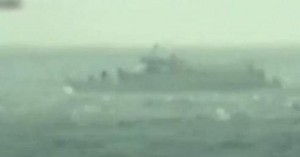
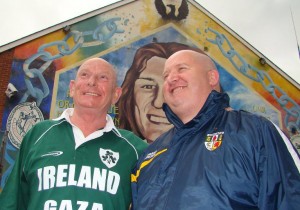
US Boat To Gaza Violence November 2011
Earlier this month, two civilian boats destined for the Gaza Strip and carrying medical cargo set sail from Fethiye, Turkey. As many listeners may know, the boats, one Canadian (“Tahrir”) and one Irish (“Saoirse”), carried 27 people–including journalists and crew—from nine different countries were met with a violent take over by Israeli military. The crew of both boats were attacked by high pressure hoses, there was heavy damage. The crew of the Canadian boat were beaten and tasered. Passengers remain in the Givon detention center. President Obama says the passengers are defying Israeli and American law. Past Law and Disorder shows last year’s flotilla. June 7, 2010 / June 21, 2010 / October 2010 / June 13, 2011
Felice Gelman:
- Some are still in prison, the process of getting people out is very opaque. The Israeli courts told them if they wouldn’t sign a false confession, to confess they had entered Israel illegally that they could be held for 2 months in jail. There were 18 people still left in Israeli jail.
- I would like to point out that this is exactly what happens to Palestinians every day.
- There are more than 6 thousand Palestinian political prisoners who go through this same opaque legal process, tortured. 90 percent of the people who have been arrested by the Israelis, Palestinians, have been tortured.
- Forty percent of the male population at one time has been held by the Palestinians for more than a week. We’re talking about a little over 3 million people.
- It’s endemic process its happening to foreigners at this point. The little kids are hit and shouted at and hooded. I think the Israelis taught the Americans.
- The Israelis are regarded as experts in with what they call terrorists.
- These boats were eagerly anticipated in Gaza. Thousands of people came down to the Gaza harbor and hundreds went out on boats hoping to greet the boats.
- Since 2006 Gaza has been under complete siege and blockade, everything that is allowed in is under Israeli control, almost nothing is allowed out.
- There is no economy, without exports, you really can’t have much of an economy. You’ve got 40 percent unemployment. 90 percent of the population is drinking polluted water because the crucial parts of the water treatment plants have not been allowed in by Israel.
- There’s only one reason Israel has been able to maintain this occupation, and that is because the United States abets it.
- There are no consequences for expanding settlements (from the Obama Administration)
- Right now the Israeli government is trying to get the US to attack Iran.
- Instead of Israel being regarded as an out of control, militarized bully is regarded as a close US ally who should determine our foreign policy.
- Endtheoccupation
Guest – Felice Gelman is with the Steering Committee that organized The Gaza Freedom March and has traveled to Gaza twice since the Israeli invasion.
—–
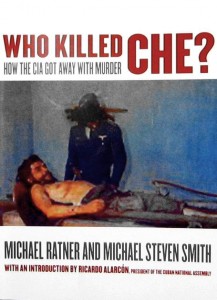
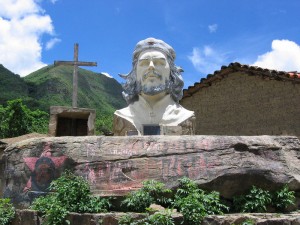
Who Killed Che? How The CIA Got Away With Murder
Co-hosts Michael Smith and Michael Ratner discuss their upcoming book Who Killed Che? A groundbreaking examination based on documents obtained from a Freedom of Information Act requests filed in 1995. This new information helps dispel the stories that the US was not involved with the murder of Che Guevara. Morning Star Review
“Ratner and Smith cut through the lies and distortions to provide a riveting and thoroughly documented history of the murder of Che Guevara. In an era when ‘targeted assassinations’ and ‘capture and kill operations’ have become routine, and are routinely glorified by the mainstream U.S. press, their examination of the U.S. role in Che Guevara’s death could not be more timely.” —Amy Goodman, host and executive producer, Democracy Now.
Michael Ratner / Michael Smith:
- One day when I was a baby I filed a Freedom of Information Act request for all the documents the FBI and the CIA had about Che Guevara.
- You and I had received the first documents 15 years ago and we wrote the first book Che Guevara and the FBI
- Ten or twelve years later I get another document drop from the CIA and these are the documents that are the most important in my view, relating to Che’s killing in Bolivia.
- The government had changed in Bolivia since 1819, 189 times.
- The book tells his story in Bolivia, and what the US did starting the counter intelligence process against him and supported the Bolivian government.
- Michael and I enjoyed working on it because we got to really know Che in a way we haven’t before.
- This book had its origin first in a document drop that was about Che’s murder and Che’s time in Bolivia. There are maps we put in the book of the last battles, where he was captured.
- The idea of the book really came from Michael Smith.
- A lot of people bought the story that was put out by the CIA agent on the ground.
- We demonstrate that the US was deeply involved in his murder.
- Ricardo Alarcon who is the president of the Cuban National Assembly, wrote the introduction to our book.
- During the Cuban Revolution, it was the Bastista troops that killed tens of thousand of revolutionaries.
- The book follows Che when he’s in Africa and various places, but then we have him going to Bolivia on November 5, 1966.
- There was a split between Che and Fidel. Fidel was worried about Che every single day.
- The first half of the book is a 25 thousand word essay by Michael Smith and Michael Ratner. It links together what happened with Che once he left Cuba.
- It’s also a biography of the US counterinsurgency program and the characters in that program that tried to make sure they would stop the Cuban revolution from spreading to other countries.
- We dedicated this book to our friend, the great movement attorney Len Weinglass. Len was the attorney for the Cuban Five.
- The Cuban Five are an important part of this story, 44 years after Che’s death.
- The US has attempted to completely destroy Cuba, and squeeze it so it could not carry out the social and economic reforms that really would’ve made it a shining example for the world.
Hosts – Michael Steven Smith is the author, editor, and co-editor of six books, mostly recently “The Emerging Police State,” by William M. Kunstler. He has testified before committees of the United States Congress and the United Nations on human rights issues. Mr. Smith lives and practices law in New York City with his wife Debby, where on behalf of seriously injured persons he sues insurance companies and occasionally the New York City Police Department. Michael Smith also organizes and chairs the Left Forum. Check out Michael’s blog here.
Host- Michael Ratner NewYork civil-rights lawyer Michael Ratner was in the U.S. Supreme Court yesterday,flanked by the mother of one of the Guantánamo detainees he has represented for the past two years, unsure what to expect. After an hour, he was pleasantly surprised. First, Sandra Day O’Connor, and then Justices Souter, Breyer, Kennedy and even Scalia, indicated through their questions that they were skeptical of the government’s argument that the men Defense Secretary Donald Rumsfeld calls “the worst of the worst” have no legal right to file habeas corpus petitions in U.S. courts.
—————————————————
Civil Liberties, Criminalizing Dissent, Human Rights, Surveillance, Truth to Power
Podcast: Play in new window | Download
Updates:
—-
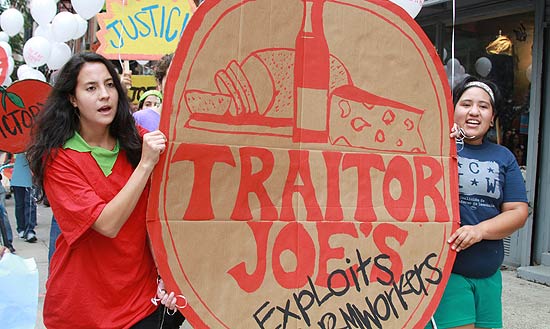

Brooklyn Fair Food Festival Urges Trader Joe’s To Support Fair Labor Standards For Farm Workers.
Brooklyn, community members joined the Coalition of Immokalee Workers an organization of farm workers in Southern Florida to call on Trader Joe’s to live up to its public image as an ethical corporation by participating in the Campaign For Fair Food. The Campaign seeks to improve wages and working conditions for Florida tomato pickers by calling on major buyers of tomatoes to pay a premium of one penny more per pound for their tomatoes, ensure that this penny is passed down directly to farmworkers, and work together with the CIW to establish and implement a code of conduct in their supply chains. Sound gathered and interviews by Michael Ratner.
—
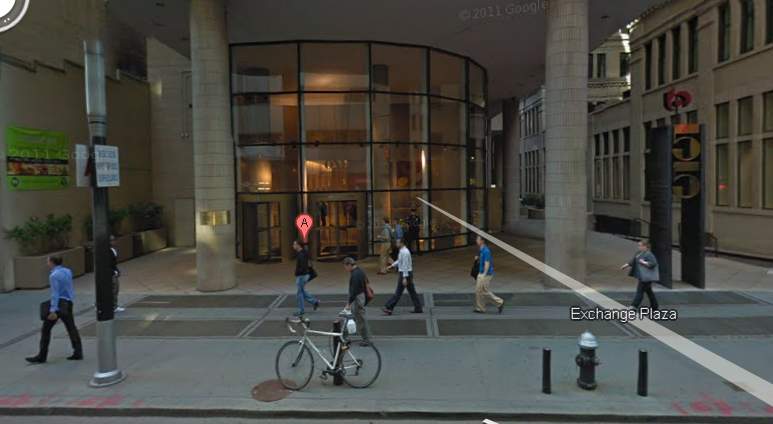

Wall Street Firms Spy On Protesters In Tax Funded Center
It was six years in the planning according to recently uncovered documents that show 150 million taxpayer dollars funding a round the clock surveillance security center in Lower Manhattan where Wall Street firms sit along side the NYPD. That’s right, high wage Wall Street firm workers will sit next to MTA, NYPD and Port Authority employees and monitor the near 3000 spy cameras installed in the area. Any individual can be tracked by the color of their clothes or face recognition with live feed cameras that also read license plates. In her article Wall Street Firms Spy on Protesters in Tax-Funded Center, investigative journalist Pam Martens also focused on the corrupt alliance of indicted corporate firms merging with police to spy on law abiding citizens funded by tax payer money. Her latest article in Counterpunch titled Financial Giants Put New York City Cops On Their Payroll exposes how private Wall Street corporations are allowed to order a paid detail of New York City Police at an average of 37.00 an hour. The taxpayer again picks up the tab for training, uniforms and any law suit brought from “following illegal instructions from its corporate master.”
Pam Martens:
- I had the benefit of managing my own client base, so Wall Street did not have the same type of leverage over me that it has over so many of its other workers.
- About 10 years into my tenure, I started reading about the private justice system Wall Street had set up where both customers and employees had to waive their rights to the nation’s courts.
- I started complaining and advocating against that. They were self policing, that was totally corrupt.
- Then I started protesting in the streets, filed a large federal rights action, and testified at several venues, the SEC and the Federal Reserve.
- The story is much more insidious than I first realized. I came across a 60 Minutes expose on the counter-terrorism unit of the NYPD. At the very end of the piece there is a tour of the facility, the one that I’m talking about.
- The Lower Manhattan Security Coordination Center, which is jointly operated by Wall Street’s potential felons and the largest law enforcement police force in the country. It’s actually at 55 Broadway.
- Goldman Sachs and Citigroup, sitting next to public sector employees.
- It consists of 3 rows of computer terminals. 2 of those rows are dominated by Wall Street firms, the NYSE, the Federal Reserve and only one row has uniformed officers.
- I called up the producer at 60 Minutes, and said you had to have seen all these people in civilian clothes.
- The NYPD has used tax payer money to have one massive computer to look at all the individual feeds. That massive computer has artificial intelligence.
- There is absolutely no explanation for why Wall Street firms get to sit there and have access confidential databases that belong to the NYPD. I have 2 FOIA requests with the NYPD. Every detail of us is under surveillance.
- There are some reports, they can zero in and read text messages on your cell phone.
- These Wall Street firms that have committed crime after crime, after crime, they’re currently under 51 separate state and federal investigations for securities fraud and essentially looting the public. They’re the partners, the potential felons, are the partners with the law enforcement.
- Credit Suisse v. Billing, 551 U.S. 264 (2007), was a decision by the Supreme Court of the United States, which held that Congress’ creation of the United States Securities and Exchange Commission (SEC) implicitly exempted the regulated securities industry from antitrust lawsuits under other existing laws. Justice Thomas dissented, arguing that the laws creating the SEC explicitly mention that securities regulations are in addition to, not instead of, existing law.
Guest – Pam Martens worked on Wall Street for 21 years. She spent the last decade of her career advocating against Wall Street’s private justice system, which keeps its crimes shielded from public courtrooms. She has been writing on public interest issues for CounterPunch since retiring in 2006. She has no security position, long or short, in any company mentioned in this article.
—————————————————————————————————-
Civil Liberties, Criminalizing Dissent, Human Rights, Targeting Muslims, Torture, Truth to Power
Podcast: Play in new window | Download
Updates:
- UN Votes 186-2 To Lift Cuba Embargo – US and Israel
- Anxiety Over Economy: Concentration Of Wealth Seen As Key Issue At A Volatile Time
- OWS Albany Arrest Controversy
—
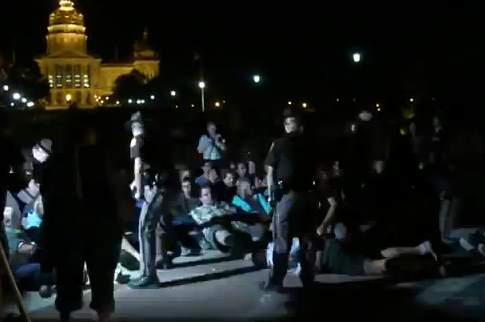
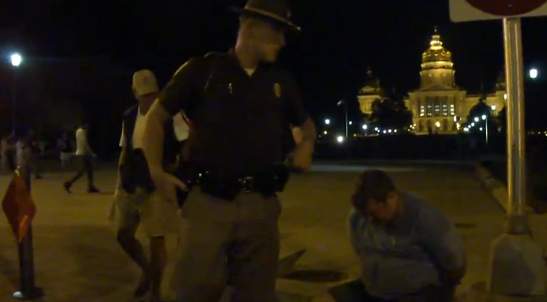
Occupy Des Moines Arrests
Police abuse of authority including excessive use of force are on the increase as more Occupy movements around the country are forced to disperse. Last week, 37 demonstrators were arrested in Des Moines, Iowa when 24 state troopers closed in on the Occupy movement there, arbitrarily enforcing curfew in a local park. Still more people were arrested in the downtown area that same night. While capturing his friend being pepper sprayed in the face on video, and then arrested, an officer directed Justin Norman to back off the sidewalk into another area. Justin was then arrested for trespassing and interfering with official acts. The officer grabbed his camera, but other protesters were able to wrestle it away from him.
Justin Norman:
- There’s an 11:00 PM curfew at the park that’s normally not enforced. Some of the people said they would walk their dogs in the park after 11:00 and no one cared. The Iowa State Patrol brought out about 24 state troopers.
- I was down there doing some video taping. The protesters began to sit as the police approached.
- The police began to be strangely brutal with some of the protesters.
- One of the leaders of the chant was asked if would like to be arrested or go. He said he would go. As he was leaving they shoved him on the ground and cut open his knees.
- They dragged him off to a police van anyway. Another person was shoved to the ground, the state trooper stepped on his head and struck him the face multiple times.
- Another guy I believe is a ten year Air Force veteran, was refusing to leave the park, arms linked with another protester, in response, one of the state troopers maced him in the face.
- I was videotaping him from the edge of the sidewalk, the state trooper told me to step back, back into the park. I’m about 20 feet from the trooper and he’s still telling me to move back.
- He tells me if I don’t continue to move back, I’m going to be charged with interference and trespassing.
- They arrested me and tried to take my camera. They took the camera and I yelled out to one of my friends and ran up and tore the camera out of the troopers hands.
- I do a demonstration against torture on a regular basis in west Des Moines.
- People got a bit frightened by the police brutality they witnessed and they decided to apply for a permit in the park. They stayed there for about 3 days, the permit expired in 3 days.
Guest – Justin Norman, activist who has filmed police misconduct, including recent raid on OWS movement in Des Moines, Iowa.
—
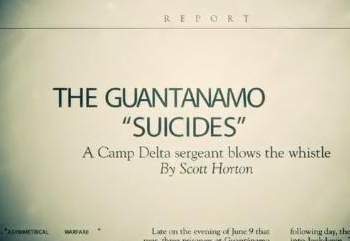
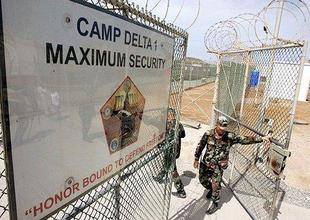
Guantanamo Murder Case: Al-Zahrani v. Rumsfeld
Last week, Center for Constitutional Rights attorney Pardiss Kebriaei present oral arguments before the U.S. Court of Appeals for the District of Columbia Circuit in the case of Al-Zahrani v. Rumsfeld. The case is a civil action filed on behalf of two men who died at Guantanamo Bay Prison in June 2006. There deaths, highly questionable and last year, four soldiers came forward with eye-witness accounts suggesting a cover up of the cause of the deaths and that they may have killed at a black site in Guantanamo. The military has maintained that the deaths were suicides, having once famously called them “acts of asymmetrical warfare.” Also, CCR attorneys have pointed to other documented examples of deaths and killings covered-up by the military in the recent past, including the falsification of records in the death of former football player Pat Tillman and the premeditated murders of Afghan civilians by members of the Army’s Bravo Company. Our own Michael Ratner has recently returned from Norway after meeting with family members of one of the men. Scott Horton article
Attorney Pardiss Kebriaei:
- This case is on behalf of the families of 2 of the 3 who died in June 2006. They were high profile deaths, the military came out immediately and said they were suicides that the men had died from creating nooses from bed sheets and hung themselves in their room.
- Then there were offensive remarks made by government spokespeople, they called them asymmetric warfare.
- They saw this as an attack, the fact that these men for having taking their own lives, from having been detained without charge in solitary confinement for 4 years, as an attack on the US government.
- They were characterized as a good PR move. These were military and Department of State spokespeople.
- Yasir was 17, he was from Saudi Arabia, he was, almost like everyone there not charged, held for almost 4 years. He was apparently a long time hunger striker.
- Along with the torture and solitary they were subjected to in terms of their condition, just the torture they were subjected to in general, they were forced into restraint chairs. Restrained at five points, their forehead, shoulders wrists and ankles, had a tube inserted up their nose and a liter of fluid pumped into their stomachs.
- In 2008 from a Freedom of Information Act litigation, the government was finally compelled to produced its information, investigation into these deaths. Supporting the claim that the deaths were suicides.
- Our clients were really disadvantaged to find out what’s really going on. I don’t think they believed these were suicides.
- The case was dismissed because the case raised special factors of national security and the military and foreign policy that were issues that were within the realm of political branches and basically not the business of courts to interfere in.
- It’s not enough to criticize the administrations anymore because the courts are accepting those arguments.
- If you’re DC, the district courts and the circuit courts in particular have been accepting those arguments.
- In 2010, 4 soldiers stationed at Guantanamo at the time came forward with eye witness accounts and were actually on duty on the night of the deaths.
- One of the soldiers came forward with direct evidence of a cover up of the actual cause the deaths. They were transported to “Camp No”
- Hickman reported hearing screams for Camp No. They reported seeing plain clothes officers sometimes going there. It was thought to be a site possibly run by the CIA or used by the CIA or Joint Special Operations Command forces of the military who are again, not accountable.
- The disdain from the DC Circuit Court for this case and every case coming out of Guantanamo was absolutely evident from the moment I opened my mouth.
Guest – Attorney Pardiss Kebriaei, she joined the Center Constitutional Rights in July 2007. Since then, her work has focused on representing men detained at Guantánamo Bay in their habeas corpus challenges, before international human rights tribunals, in diplomatic advocacy with foreign governments to secure resettlement for men who cannot return home, and in post-release reintegration efforts. Her clients have included men from Yemen, Syria, Algeria, and Afghanistan. Her work includes seeking accountability for torture and arbitrary detention at Guantánamo.
———————————————————–
Civil Liberties, Criminalizing Dissent, Habeas Corpus, Human Rights, Truth to Power, War Resister
Podcast: Play in new window | Download
Updates:
—-
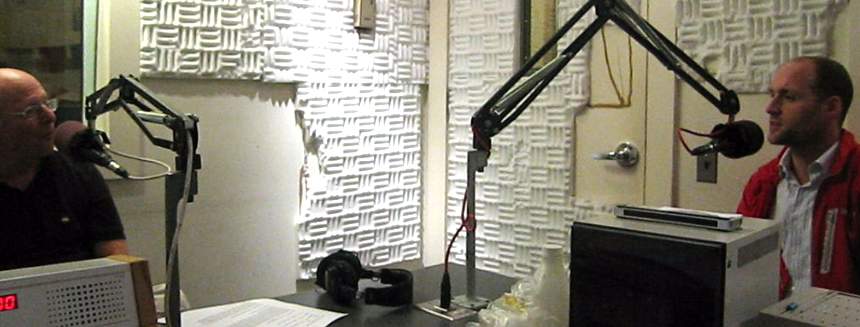
Occupy Wall St. – Think Tanks and Organizing
Like many protesters down at Liberty Plaza, Tim Weldon has been under employed for years. He’s got a Masters Degree, one in economic development and 10 years experience in international business. He’s now part of Occupy Wall St working with the think tank group. The first step is taking all the ideas and solutions generated from the movement and collating them into a more accessible format.
Tim Weldon:
- The food is hit or miss, you cycle through, get in line, whatever is there at the time, that’s what you get.
- There’s sanitation, first aid, media press, PR. The group that I’m specifically on is the think tank.
- Similar to a lot of people, said, how do I fit in and what exactly is going on? Like most people I got down there and thought how do I fit in to where I most belong? So, I walked around for most of the day, I got to the stage to where I thought, what I would be good at and what could fit in here.
- Then I found some very like minded people who were thinking the same thing, to sort of create an opportunity for all of the ideas to be collected, organized and collated together. The think tank, we’re going to have four different receptacles for information.
- One will be from the park where we’ll have discussion groups on topics. We’re trying to develop a web platform within the NYCGA.net .
- We’re getting all walks of life, one of the best participants was a disabled man.
- The discussions have been so positive and energetic and we’re saying how can we take both of these ideas and forget about the established dichotomies and all this dogma that people are working with.
- Let’s go straight to us right here, let’s create a productive use of this information where everybody is happy.
- I found that everybody I’m working with open and wants to listen, wants to learn, the way most of the groups work is there’s no leaders. I like to draw differentiation between leaders and leadership.
- People are coming here after they’ve been setup and more streamline or coming here to get things more streamline. Take a step back, try to envision something different.
- Everybody seemed united around, well, they want it clean, lets get things clean.
- People were doing what had to be done and getting things done, but there was a subtle apprehension there, what’s going to happen tomorrow? How serious is it going to be? How much are we going to have to fight, not in a physical sense but in all sort of senses for this space?
- Most of the country can get behind the fact, whether your left or right, whatever it is, you’ve got some apprehension about what’s going on in the country right now and that’s what we’re trying to voice.
- Holding that space is really important to the movement.
- Maintaining that park is very important because it is the symbol. You control us in every other aspect of our lives perhaps, but you don’t control us here.
- I left my job last week, this to me is the movement of our generation.
Guest – Tim Weldon is from upstate New York. He quit his job to dedicate his time to help the Occupy Wall Street movement. Specifically, Tim is working with the think tank group, pulling together ideas and solutions pouring in from around the country and making them more accessible to media and others. Tim has a Master’s Degrees in economic development. He also has 10 years experience in international business.
—
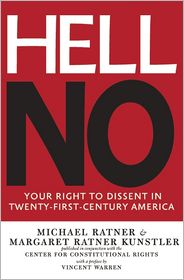
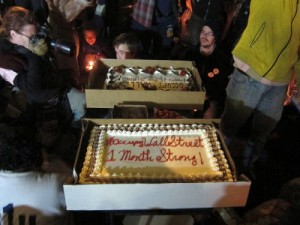
Occupy Wall Street: Attorney Margaret Ratner-Kunstler Part 2
We continue the “know your rights” discussion on the Occupy Wall St protests, encampments and demonstrations. Last week we talked about how the NYPD collected intelligence data from protesters. When more than 800 people on the Brooklyn Bridge were arrested a few weeks ago, that event was more about getting protester names and pedigree information into databases says attorney Margaret Ratner-Kunstler with the National Lawyers Guild. Meanwhile students from 90 colleges and universities are protesting the price of education, being saddled with student loan debt and more. There are many aspects to knowing your rights as a demonstrator and we’ll discuss more details today with returning guest attorney Margaret Ratner Kunstler.
Attorney Margaret Ratner-Kunslter:
- You can be anywhere to express your first amendment rights. I think occupation is a new first amendment right.
- The occupation movement is relatively new and we haven’t really tested it in the federal courts or state courts and I think we have a good opportunity to do that. They haven’t got people out of the park because when they threatened to do so, the number of people swelled from about 1000 to 6000.
- I think it was a question of mass support for the demonstration that prevented the police from clearing the park.
- Seattle was a successful protest (1999) it interfered with delegates going to the convention center and it was a very embarrassing thing for the police because it was an international conference.
- Kettling is those big iron fences, they put people in these fenced areas to keep them separated so they can be crowd control.
- By the time Michael and I finished this book, we were saying, oh, they’re never going to be able to demonstrate again. But lo and behold, a new form of demonstrations is upon us, and its just thrilling.
- The police officer who pepper sprayed the young woman, lost ten vacation days.
- That was the immediate result after Seattle, there were fusion centers. Those are centers where the FBI and local police get together and collect information.
- Every time they hear of a demonstration, they try to prevent it, they have many ways to dissuade people from coming to demonstrations.
- Militarization of the police: It was no longer a family occupation to protest against the war, it was a dangerous thing to do. You got stuck in a pen and you couldn’t get out.
Guest – Magaret Ratner-Kunstler, an attorney in private practice. As education director at the Center for Constitutional Rights, she originated the Movement Support Network and authored “If an Agent Knocks.” Margaret is the President of the William Moses Kunstler Fund for Racial Justice, a foundation established in 1995 in the memory of her late husband to combat racism in the criminal justice system.
——————————-


















